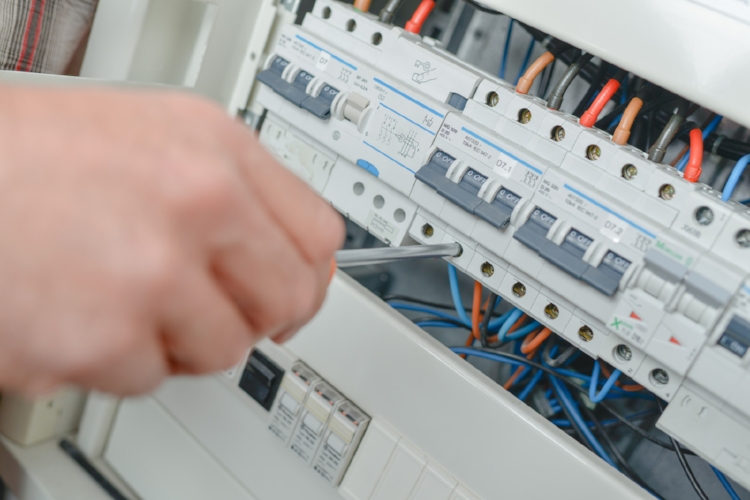Electrical Installation Condition Reports (EICR)
/The Importance of EICR
Within the property services industry it is common knowledge that employers have a responsibility to ensure their premises meet regulations, are compliant and safe for their staff and customers. Electrical safety forms a major part of building compliance and in this blog we look at the importance of having an Electrical Installation Condition Report (EICR) conducted.
What is an EICR?
An EICR or periodic inspection confirms, as far as reasonably practicable, whether the electrical installation is in a satisfactory condition for service or not. The inspection should identify any condition, damage, deterioration or defect which may result in danger.
Electricity at Work Regulation 621.1 explained
Regulation 621.1 states that "where required, periodic inspection and testing of every electrical installation shall be carried out in accordance with regulations 621.2 to 621.5 in order to determine as far as reasonably practicable, whether the installation is in a satisfactory condition for continued service".
This regulation relates to electrical installations which are not newly built or altered. In this case a periodic inspection is to be carried out. Together with visual inspection it consists of a full inspection and testing procedure and is followed by the completion of the Electrical Installation Condition Report (EICR).
These certificates are documents which must be kept by both the "person ordering the work" (i.e.: owner) and the "competent person" (qualified electrician) completing the inspection and testing procedure.
Please note:
Although the requirement to inspect and test electrical installations to ensure compliance with BS7671, is a NON-STATUTORY document, by complying with BS7671, you are also complying with Health and Safety at Work Act 1974 and Electricity at Work Regulations 1989, both of which are STATUTORY documents.
How often should a Periodic Inspection be conducted?
It is recommended, for safety reasons, that the electrical installation should be re-inspected at regular intervals by a skilled person or persons, qualified to conduct this work. Generally, dependent on the use of the building, the time period between inspections (or the time between installation and the first inspection) should not exceed five years unless recommendations have been made for a shorter interval.
Reasons to ensure your EICR is up to date
Safety always come first. Regular testing of your electrical systems will provide peace of mind that the workplace is safe for you and your staff and that the likelihood of injury occurring due to electrical shock or fire has been reduced.
Ensuring your building is compliant. Having an up to date EICR shows that you understand the importance of remaining compliant and your responsibilities as set out in The Health and Safety at Work Act 1974 and The Electricity at Work Regulations 1989.
Insurance. Some insurance companies are requesting that electrical testing is conducted and evidenced on a regular basis. Should you need to make a claim based on a possible electrical fault, you may need to provide details of the process you have with regard to electrical safety, such as an EICR certificate. Check your insurance policy to see what the requirements are.
Energy Efficiency. Not only will an EICR confirm that your electrical equipment is safe, it can also highlight areas where the system can be improved which could reduce the amount of electricity you use which will reflect well on your business' carbon footprint.
Save money. By reducing your energy consumption, your business can save money. Also, if faults are identified early, they can be rectified before they accelerate and cause further unnecessary damage.
JCW have history dating back to 1903 within the electrical engineering industry. We are also the oldest member of the Electrical Contractors’ Association (ECA). Although our business model has changed over the years, the electrical engineering services we provide continues to form half of our maintenance turnover.
This experience puts us in a strong position when tendering for new work, it also provides our existing customers with peace of mind in that we are looking after their electrical assets, ensuring that they remain compliant. If you would like to know more about how we can ensure your electrical systems remain compliant contact us now, we will be happy to help and advice.












